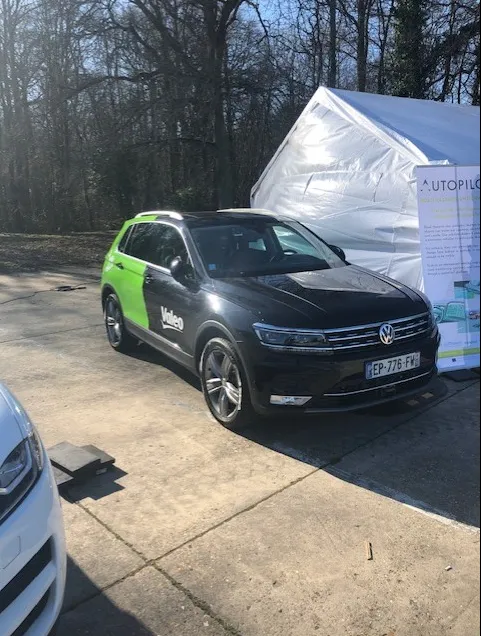An AECOM-led consortium has secured more than US$5.2 million (£4.2 million) of funding from Innovate UK and the Centre for Connected & Autonomous Vehicles (CCAV) to deliver a pilot scheme that could pave the way for the use of connected and autonomous vehicles to move people around airports, hospitals, business parks, shopping and tourist centres.
The pilot project includes the design, development and testing of new autonomous and connected pods on-demand (PODs), culminating in on-road public trials at L
April 13, 2017
Read time: 2 mins
An 3525 AECOM-led consortium has secured more than US$5.2 million (£4.2 million) of funding from Innovate UK and the Centre for Connected & Autonomous Vehicles (CCAV) to deliver a pilot scheme that could pave the way for the use of connected and autonomous vehicles to move people around airports, hospitals, business parks, shopping and tourist centres.
The pilot project includes the design, development and testing of new autonomous and connected pods on-demand (PODs), culminating in on-road public trials at London’s Queen Elizabeth Olympic Park.
Comprising 20 partnering organisations, the AECOM-led CAPRI consortium brings together academic institutions, businesses, SMEs and public sector authorities with a range of skills, knowledge and needs in the connected and autonomous vehicles (CAVs) arena. The project will include the development of the next generation of PODs, as well as the systems and technologies that will allow the vehicles to navigate safely and seamlessly in both pedestrian and road environments.
The consortium will also look at how the network can harness data to enable location, positioning and on-demand services. It is anticipated that evidence collected through the pilot will provide sufficient detail to enable and support a new vehicle classification for the PODs.
The project includes four trials, with the first on private land at Filton Airfield near Bristol, with the aim of testing and validating the performance of the new generation PODs. The second trial will test a public service in a shopping centre car park to assess performance in busy pedestrian areas. The final two trials will be at the Queen Elizabeth Olympic Park and will test a public on-demand mobility service in pedestrian areas, with the PODs identifying and navigating the best routes, as well as a public test on a network of roads, with the service interacting with traffic control systems.
An important aspect of the scheme will be safety and security. For the first time, the project will apply accident analysis to PODs to identify potential causes of accidents that will require testing and evaluation in the real-world, while using state-of-the-art techniques to simulate other scenarios, therefore reducing the need for real-world testing. The consortium will also undertake a system-wide cyber-physical security analysis to identify how to protect the POD systems from being compromised.
The pilot project includes the design, development and testing of new autonomous and connected pods on-demand (PODs), culminating in on-road public trials at London’s Queen Elizabeth Olympic Park.
Comprising 20 partnering organisations, the AECOM-led CAPRI consortium brings together academic institutions, businesses, SMEs and public sector authorities with a range of skills, knowledge and needs in the connected and autonomous vehicles (CAVs) arena. The project will include the development of the next generation of PODs, as well as the systems and technologies that will allow the vehicles to navigate safely and seamlessly in both pedestrian and road environments.
The consortium will also look at how the network can harness data to enable location, positioning and on-demand services. It is anticipated that evidence collected through the pilot will provide sufficient detail to enable and support a new vehicle classification for the PODs.
The project includes four trials, with the first on private land at Filton Airfield near Bristol, with the aim of testing and validating the performance of the new generation PODs. The second trial will test a public service in a shopping centre car park to assess performance in busy pedestrian areas. The final two trials will be at the Queen Elizabeth Olympic Park and will test a public on-demand mobility service in pedestrian areas, with the PODs identifying and navigating the best routes, as well as a public test on a network of roads, with the service interacting with traffic control systems.
An important aspect of the scheme will be safety and security. For the first time, the project will apply accident analysis to PODs to identify potential causes of accidents that will require testing and evaluation in the real-world, while using state-of-the-art techniques to simulate other scenarios, therefore reducing the need for real-world testing. The consortium will also undertake a system-wide cyber-physical security analysis to identify how to protect the POD systems from being compromised.









